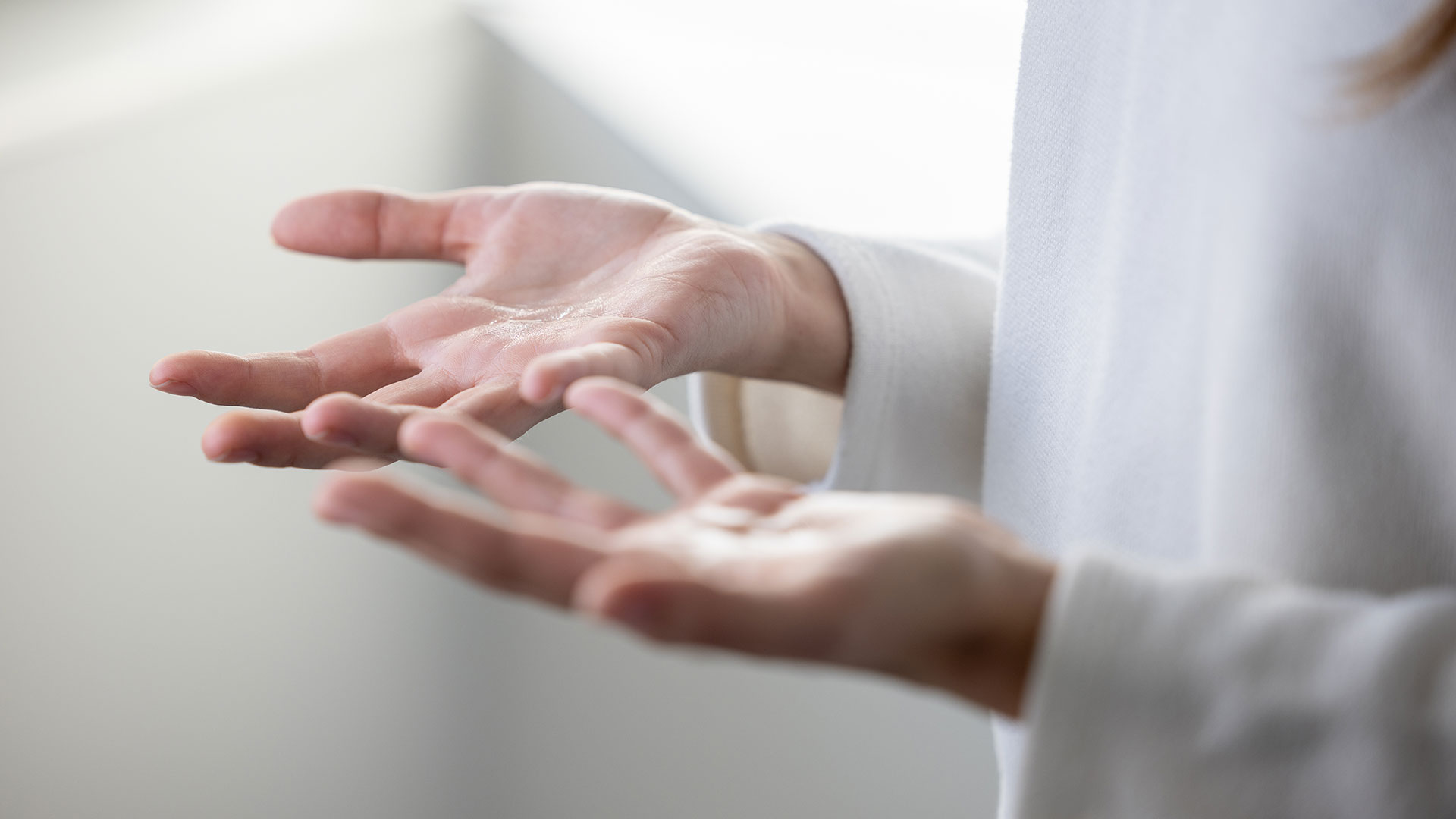Prevalence studies indicate that about 2% of Portuguese people suffer from hyperhidrosis. Many patients do not seek medical help because they feel embarrassed to report the symptoms and are unaware of treatment options, leading to this clinical condition being underdiagnosed in Portugal. Discover exactly what hyperhidrosis is and the recommended treatment.
What is hyperhidrosis?
Hyperhidrosis is a benign condition characterized by inappropriate functioning of the autonomic nervous system, resulting in excessive sweating without an apparent trigger, such as physical exercise or exposure to high temperatures. In fact, it can even occur during sleep.
The most affected anatomical areas are the palms, feet, armpits, face, scalp, neck, and groin. Although it is a benign condition, hyperhidrosis can have a significant psychological impact due to embarrassment in interpersonal relationships, and it can also interfere with many professional activities.
What’s the treatment for Hyperhidrosis?
Non-severe hyperhidrosis is generally resolved with antiperspirants prescribed by a doctor. These products are similar to deodorants and are applied directly to the affected area. They contain elements and properties that form a protective film on the skin, reducing the amount of sweat released. Although this treatment does not definitively solve the problem, it considerably alleviates the effects of the condition. The use of botulinum toxin may also be recommended, a substance that blocks muscle signals, or thermolysis with microwaves, which causes the breakdown of sweat glands by heat.
For more severe cases where a definitive therapeutic approach is desired, Bilateral Superior Thoracic Sympathectomy may be considered – a minimally invasive procedure in which two incisions are made in the chest, through which the surgeon introduces a titanium clip to isolate the ganglion responsible for sweat production in the area affected by hyperhidrosis. Symptoms cease immediately and definitively, and the patient quickly returns to their normal life.
This surgery lasts about 20 minutes and is performed in the operating room under general anesthesia, being carried out on an outpatient basis, meaning the patient resumes their daily and professional activities immediately without the need for hospitalization.
In 3% of cases, it may lead to compensatory sweating in the postoperative period, most commonly in the dorsal and abdominal regions, which consists of excessive sweating in other untreated areas as a way for the body to compensate for lost production. However, when it occurs, this condition is generally well tolerated by most patients.
It is worth noting that this surgery is fully reversible, simply requiring the removal of the previously inserted clip.
What are the symptoms and causes of hyperhidrosis?
Usually, there is a bodily region with a pronounced predominance of hyperhidrosis. When excessive sweating occurs on the palms and armpits, patients adopt strategies to hide the problem, such as avoiding picking up objects, writing, or greeting others. They frequently stain clothes and other accessories that may display sweat marks.
In some situations, sudden and unpredictable excessive sweating may occur without an apparent reason or triggered by stimuli such as heat, anxiety, stress, among others. Although more frequent in specific body parts (focal hyperhidrosis), excessive sweating can occur throughout the body (generalized hyperhidrosis).
The causes of hyperhidrosis are not known. Some studies have suggested the possibility of it being linked to anxiety, nervousness, or emotional stress, but this condition has also been found in people who did not present significant emotional changes.
How is the diagnosis of hyperhidrosis made?
The diagnosis of hyperhidrosis is made by the doctor through a clinical interview and various laboratory tests. First, it is important to determine if the symptoms have persisted for several months and if they persist regardless of triggering factors, such as physical exercise or an increase in room temperature. If the symptoms are visibly present throughout the year, we are dealing with a case of hyperhidrosis.
Why choose Joaquim Chaves Saúde?
At Joaquim Chaves Saúde, you will find a team of highly experienced specialist doctors in the diagnosis and treatment of different autonomic nervous system pathologies. The Hyperhidrosis Consultation is available at the Surgical Clinic in Carcavelos.
Schedule your appointment here.

